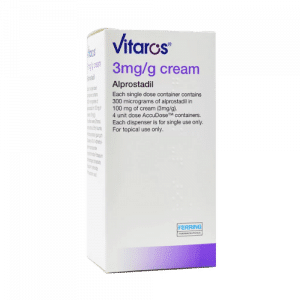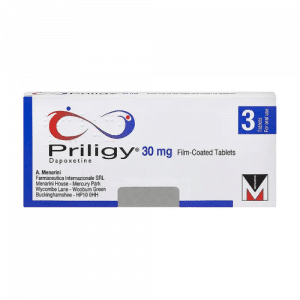
Trimethoprim 200mg: Efficient Cystitis Treatment
Trimethoprim 200mg offers an effective solution for the treatment of uncomplicated cystitis in women. As a widely prescribed antibiotic, it targets the bacteria causing urinary tract infections, providing relief from symptoms within 24 hours. With its action on inhibiting bacterial growth, Trimethoprim serves as a key option for those seeking quick resolution of infection symptoms. Suitable for adult use, this medication requires a short course of treatment, typically over 3 days, making it a convenient choice for managing urinary tract infections with a high success rate in improving symptoms swiftly.
Trimethoprim
£11.99
Product Information
About Trimethoprim
Choosing the right antibiotic for cystitis
The information below is about trimethoprim tablets. There is a separate page about nitrofurantoin capsules, the alternative antibiotic available from Dr Fox for cystitis in women. General information about cystitis and standby treatment, and selecting the right antibiotic, can be found at the cystitis medical information page. Please also read the manufacturer’s patient information leaflet supplied with trimethoprim tablets.
Trimethoprim is an antibiotic commonly used to treat uncomplicated cystitis in women, and other urine infections. In the last few years, antibiotic resistance to trimethoprim has increased. About 30% of the bacteria that cause cystitis are now resistant to trimethoprim and it is no longer always the first choice antibiotic by GPs. The antibiotic nitrofurantoin is now often more effective and is often the first choice, although trimethoprim is still widely prescribed and many women find it effective and prefer it.
For further information see NHS – trimethoprim.
Taking trimethoprim
Trimethoprim 200mg twice daily for 3 days (12 hours between doses) is usually effective for cystitis. The tablets should be swallowed whole with a glass of water. They should not be chewed.
Improvement is usually seen within 24 hours and symptoms are usually completely resolved after 3 days.
Cautions and contraindications
Trimethoprim is not suitable for everyone. Patients with some medical conditions or who are also taking some other medicines cannot take it. Checks for suitability are carried out in the online consultation which is part of the ordering process.
Do not take trimethoprim tablets if the following apply:
- Allergy to trimethoprim or any of the other tablet ingredients.
- You are pregnant.
- Severe liver problems.
Do not take trimethoprim tablets without first checking with your doctor or pharmacist if the following apply:
- Kidney problems, including dialysis.
- Low folic acid may lead to anaemia.
- Known risk of high blood potassium levels.
- Porphyria.
Interactions
Trimethoprim should not be taken with the following medicines:
- Repaglinide (diabetes).
- Procainamide (heart rhythm control).
- Digoxin (heart).
- Diuretics (water tablets).
- Rifampicin (tuberculosis).
- Warfarin-type anticoagulants (blood thinners requiring regular blood testing).
- Phenytoin (epilepsy).
- Pyrimethamine and dapsone (malaria).
- Immunosuppressant and bone marrow depressant drugs (including azathioprine, methotrexate, and ciclosporin).
- Colistimethate (cystic fibrosis).
If in doubt about other medication check with your doctor or pharmacist.
Side effects and severe reactions
As with any medicine side effects may occur although most patients do not experience them, or they may be mild and treatment does not always need to be stopped.
Allergic reactions
In very rare cases (fewer than 1 in 10,000), there may be an acute allergic reaction leading to angioedema or anaphylaxis. If affected, stop taking trimethoprim, and contact your GP, out-of-hours service, or telephone 111 or see 111.nhs.uk online. In an emergency telephone 999.
Side effects (non-emergency)
The side effects listed below are not medical emergencies but may require medical advice.
Common (may affect up to 1 in 10 people):
- Feeling sick (nausea), being sick, diarrhoea.
- Headache.
- Skin rashes including hives (urticaria) and itching.
- Thrush or sore mouth (glossitis).
For more details about side effects see the manufacturer’s patient information leaflet.
Pregnancy and breastfeeding
DO NOT take trimethoprim tablets if you are pregnant, think you may be pregnant or are trying to get pregnant.
If you are breastfeeding, it is usually fine to take a short course of trimethoprim, although small amounts are found in breast milk. The manufacturer recommends asking your doctor or pharmacist for advice before taking trimethoprim when breastfeeding.
Dr Fox does not supply cystitis treatment for women who are pregnant or breastfeeding – please contact your GP.
Other measures that can help cystitis
- Increase the amount of water you are drinking each day to 2-3 litres (4-5 pints, or 10-12 glasses or mugs).
- Avoid alcohol, caffeine, and fizzy drinks which can irritate the bladder.
- Take paracetamol or ibuprofen for pain if necessary.
Sometimes cystitis will go away by itself in a few days without antibiotic treatment. If symptoms are mild, self-treatment and ‘wait-and-see’ for a few days may be the best approach. If symptoms are severe, or worsening, antibiotics are usually preferred. Women who have repeated infections will usually know if their symptoms are likely to stop on their own.
Related Products
-
Erectile dysfunction medication
Eroxon ED Treatment Gel – 4 Pack
Rated 0 out of 5£25.00 Add to basket -
-
-




